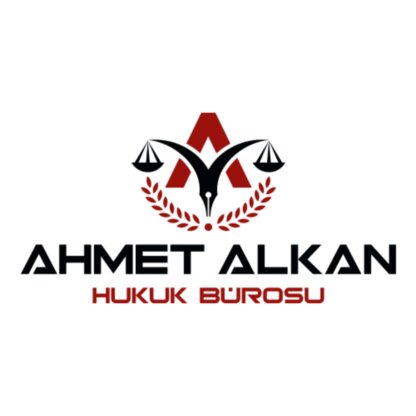Best Collaborative Law Lawyers in Kepez
Share your needs with us, get contacted by law firms.
Free. Takes 2 min.
Free Guide to Hiring a Family Lawyer
List of the best lawyers in Kepez, Turkey

Antalya Attorney /Адвокат Mert Veysel Yilmaz - Yilmaz Attorneys Law Firm
15 minutes Free ConsultationAbout Collaborative Law in Kepez, Turkey
Collaborative Law is an alternative dispute resolution process that enables parties to resolve legal disputes outside of the traditional court system. In Kepez, Turkey, this approach has become increasingly popular-particularly in family law matters such as divorce and child custody, as well as in commercial disputes. The process involves both parties working with their respective lawyers and, in some cases, neutral experts, to reach a mutually beneficial agreement through structured negotiation. Collaborative Law is founded on transparency, respect, and a commitment to finding practical solutions without litigation.
Why You May Need a Lawyer
Engaging a lawyer experienced in Collaborative Law can be crucial in various circumstances, such as:
- Navigating divorce, separation, or child custody issues in a less adversarial manner.
- Settling business or partnership disputes amicably to preserve professional relationships.
- Drafting and negotiating settlement agreements without going through lengthy court proceedings.
- Ensuring that your legal rights and interests are protected while finding common ground with the other party.
- Accessing objective advice and guidance throughout the negotiation process, helping avoid common pitfalls and misunderstandings.
A collaborative lawyer not only acts as your advocate but also as a facilitator, promoting constructive communication and helping all parties arrive at a solution they can accept.
Local Laws Overview
In Kepez, as part of Turkey's wider legal system, Collaborative Law practices are influenced both by national regulations and local judicial attitudes. Key points to understand include:
- Collaborative Law is conducted voluntarily, and both parties must agree in writing to resolve the dispute through this method, instead of litigation.
- Confidentiality is a cornerstone of the process. Unless required by law, discussions and negotiations cannot be used as evidence if collaborative efforts fail and the matter proceeds to court.
- If the process is unsuccessful, the collaborative lawyers representing each party are usually disqualified from representing them in related court proceedings, emphasizing commitment to settlement.
- Collaborative Law is often applied in family law cases, but its application is expanding to commercial and civil disputes in Kepez.
- Agreements reached through Collaborative Law can be legally binding once signed or submitted to the local notary or family court for approval, depending on the matter at hand.
- While there is no specific Turkish statute dedicated solely to Collaborative Law, it operates within the legal framework provided by the Turkish Civil Code and relevant mediation laws.
Frequently Asked Questions
What is the main difference between Collaborative Law and mediation?
Collaborative Law involves each party having their own lawyer present during negotiations, whereas mediation is typically led by a neutral third party (a mediator) who does not represent either side. Collaborative Law lawyers remain committed to out-of-court solutions.
Is Collaborative Law recognized by courts in Kepez?
Yes, agreements reached through Collaborative Law can be recognized and formalized by courts in Kepez, especially if the agreement complies with Turkish laws and is submitted appropriately.
What happens if we cannot reach an agreement?
If an agreement cannot be reached, the collaborative process ends, and both parties may proceed to court. The collaborative lawyers are generally not allowed to represent the parties in subsequent litigation to encourage full commitment to the out-of-court process.
Can Collaborative Law be used for business disputes?
Yes, while initially popular for family matters, Collaborative Law is increasingly used for resolving commercial and partnership disputes outside of court.
Are agreements made during Collaborative Law sessions legally binding?
Once documented and signed by all parties, and-as required-approved by the relevant authority (such as a court or notary), these agreements can be legally binding in Turkey.
How long does the Collaborative Law process take?
The timeline can vary depending on the complexity of the issues and the willingness of parties to cooperate. In general, it is often faster than traditional court litigation.
Do I need a lawyer for Collaborative Law in Kepez?
While not strictly required by law, it is strongly recommended to have a lawyer experienced in Collaborative Law to ensure your interests are protected and all legal procedures are followed.
What types of professionals may be involved besides lawyers?
In addition to lawyers, the collaborative process may involve child specialists, accountants, or counselors, particularly in complex family or financial matters.
Is everything said during the process confidential?
Yes, confidentiality is fundamental. Generally, discussions during Collaborative Law remain confidential and cannot be used as evidence should the process lead to litigation, except in cases where disclosure is required by law.
How do I start the Collaborative Law process in Kepez?
Begin by consulting a local lawyer trained in Collaborative Law, who can advise you on your options and contact the other party to propose the collaborative approach.
Additional Resources
For more information and assistance regarding Collaborative Law in Kepez, you can consult the following resources:
- Antalya Bar Association: Offers referrals to qualified lawyers experienced in Collaborative Law.
- Kepez Municipality Legal Affairs Unit: Provides general legal guidance and information about alternative dispute resolution methods.
- Ministry of Justice (Turkey): Offers detailed guides about dispute resolution, mediation, and civil procedures.
- Local family and civil courts: Information desks can provide guidance on how to formalize agreements reached collaboratively.
Next Steps
If you believe Collaborative Law may be an effective solution for your situation, here is how you can proceed:
- Identify and contact a lawyer in Kepez with expertise in Collaborative Law. The Antalya Bar Association can assist with referrals.
- Schedule an initial consultation to discuss your case, learn about your options, and determine if Collaborative Law is appropriate for your needs.
- Reach out to the other party-directly or through your lawyer-to propose resolving your dispute collaboratively.
- Formalize the agreement to participate in the Collaborative Law process and begin structured negotiations with both parties and their lawyers.
- Once an agreement is reached, work with your lawyers to draft, sign, and-if required-register or submit the agreement for judicial approval.
Remember that the key to success in Collaborative Law is openness to negotiation and a willingness to work towards a solution that benefits all parties involved. Seek professional advice early to protect your interests and navigate the local legal landscape effectively.
Lawzana helps you find the best lawyers and law firms in Kepez through a curated and pre-screened list of qualified legal professionals. Our platform offers rankings and detailed profiles of attorneys and law firms, allowing you to compare based on practice areas, including Collaborative Law, experience, and client feedback.
Each profile includes a description of the firm's areas of practice, client reviews, team members and partners, year of establishment, spoken languages, office locations, contact information, social media presence, and any published articles or resources. Most firms on our platform speak English and are experienced in both local and international legal matters.
Get a quote from top-rated law firms in Kepez, Turkey — quickly, securely, and without unnecessary hassle.
Disclaimer:
The information provided on this page is for general informational purposes only and does not constitute legal advice. While we strive to ensure the accuracy and relevance of the content, legal information may change over time, and interpretations of the law can vary. You should always consult with a qualified legal professional for advice specific to your situation.
We disclaim all liability for actions taken or not taken based on the content of this page. If you believe any information is incorrect or outdated, please contact us, and we will review and update it where appropriate.








